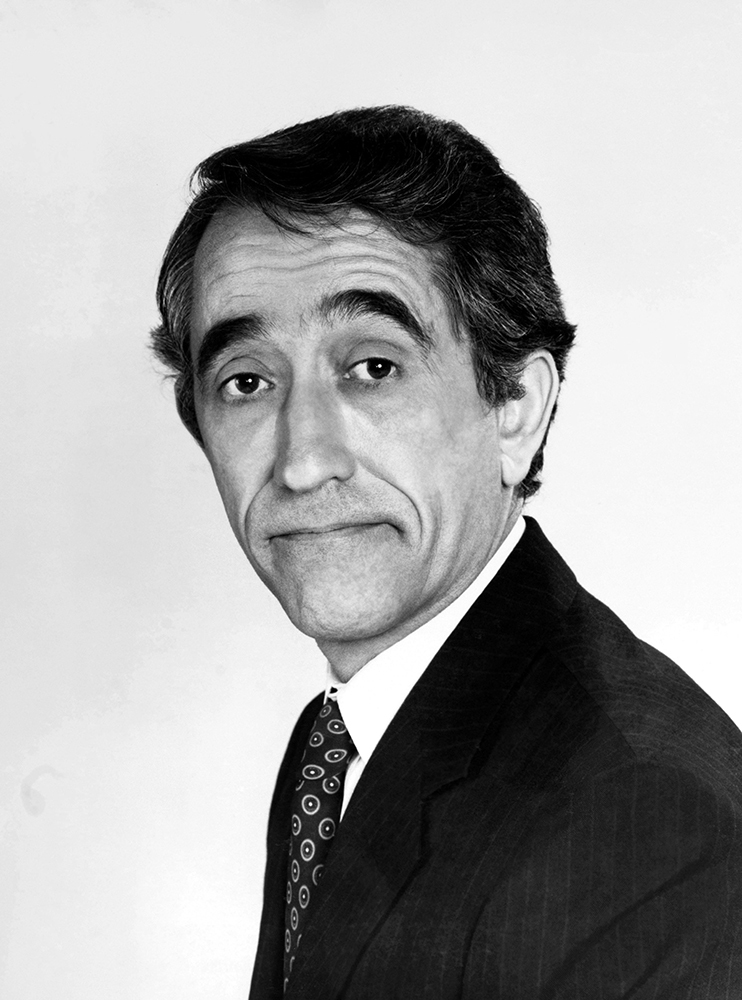 Menu
Menu
 Menu
Menu
“We can be decisive? Probably.”
The late 1960s was filled with social and political upheaval. Movements against war, for civil rights, and for gender and sexual liberation took root.
In these boisterous days, some people focussed on the sensational turmoil. They worried that the turmoil signalled the end of liberal democracy. Their worries, it turns out, were unfounded. Liberal values include the right to voice ideas, express opposition, and peacefully protest. Late 1960s protest movements—with a few violent exceptions—kept with this spirit. More importantly, many “controversial” movements of the 1960s became today’s common sense.
One influential place where the best of this boisterous spirit emerged was an American television show, The Smothers Brothers Comedy Hour. A weekly fusion of musical acts and satirical skits, it appealed to people who cared about society but took issue with conventional politics.

Pat Paulsen, the first person to fuse a satirical political run with a national television show.
A popular cast member was deadpan comedian Pat Paulsen. Paulsen regularly critiqued politics and society with sharp but humourous editorials. His editorials seemed silly on the surface, but they were underpinned with a genuine concern for society’s well-being.
Paulsen said the military budget should be used to buy off enemies instead of funding war. His commentaries on gun control often ended with him accidentally shooting someone. He believed that marijuana should be kept from students because it was too good. And he claimed that America’s problems were rooted in poor immigration policies established by Indigenous people.
Paulsen’s views were political, but they were not partisan. He didn’t singularly obsess over any particular politician or party. Rather, he poked fun wherever he saw folly. And viewers loved it. As the 1968 election approached, Paulsen for President clubs popped up across America.
“I’ve upped my Standards. Now up yours.”
As talk of Paulsen running spread, he dryly responded that these were “rumours of the worst kind: true rumours.” He added that “I will not run if nominated and, if elected, I will not serve.”
Of course, Paulsen did run. The show hired a professional campaign manager, Paulsen proclaimed himself “a common, ordinary, simple saviour of America’s destiny,” and he entered the race to deliver smart, risqué, but not cruel satire.
Paulsen toured the country extolling his Straight Talking American Government Party: the STAG Party. He joked that he was on the campaign trail “kissing hands and shaking babies.” His absurd fundraisers included selling cookies door-to-door. At packed rallies, fans cheered when he told them “I’ve upped my standards. Now up yours.” His campaign culminated with a landmark mock TV documentary, Pat Paulsen for President, a top 20 show that week.
To nobody’s surprise, Paulsen didn’t win the election. Winning was never his goal. Rather, Paulsen was there to “make people interested in the political process by demystifying it,” as Smothers Brothers writer Mason Wilson observed. That is, Pat Paulsen ran for president so that people would understand how we are governed and think critically about how we elect our leaders.
Satire is like a house of mirrors at a carnival. It reflects who we are, but that reflection is distorted. Details are exaggerated. Facts are omitted. And often, things are outrightly wonky.
Satire uses distorted reality to bring about humour, expose folly, and help us think critically about ourselves and our world.
A useful way, then, to think about satire is Dieter Declerq’s definition. In his book Satire, Comedy, and Mental Health, he argues that satire sets out to “critique and entertain.” Simply, when something entertains you and helps you think critically about social and political issues, it may very well be satire.